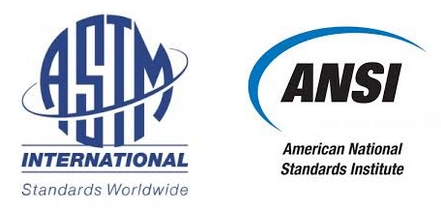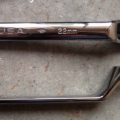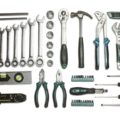The American National Standards Institute, mostly known as ANSI, and the American Society of Mechanical Engineers, mostly known as ASME, are both private, non-profit organizations mainly focusing on bringing uniformity in voluntary standards used in the engineering process. Although both organizations work on national and global standards, the core difference between the two organizations can clearly be seen in their mission and vision.
ASME is more inclined towards setting codes and standards for mechanical devices.
ANSI accredits standards for the products, processes, systems, services, and resources in the USA.
ANSI Information
ANSI was originally founded on May 14, 1918, with members from government agencies, corporations, organizations, academic fields, and individuals. ASME is one of the oldest standards developing organizations founded in 1880 as a result of numerous steam boiler pressure vessel failures. The members of ASME comprise professional engineers and various companies.
The main focus of ANSI lies in overseeing the standards developed by personnel of the standards developing organization for products and services so as to ensure the features and the performance levels of the products developed in the United States are consistent. ANSI works to fortify the position of the United States in the global market. ANSI is also actively involved in accrediting organizations that sponsor product or personnel certification in compliance with the international standards by meeting all the requirements. ANSI also works on some green initiatives such as protecting ecosystems.
ASME Information
ASME is involved in numerous activities such as; magazines, technical publications, conducting technical conferences, professional development courses, as well as sponsoring various educational programs. ASME believes in promoting the art, science, and practice of mechanical engineering and other allied sciences to the technical communities across the world.
ANSI concentrates on taking the U.S. businesses at top levels by promoting voluntary consensus standards. ASME, on the other hand, concentrates on delivering solutions to the real issues faced by the engineering professionals in day-to-day life.
Though ANSI doesn’t develop standards by itself, it supervises the development and use of the standards by organizations. ASME has developed more than 600 codes and standards for mechanical devices such as; boiler components, elevators, measurement of fluid in closed conduits, fasteners, and other tools covering all technical aspects.
Summary:
1. ANSI accredits standards developed by organizations whereas ASME develops codes
and standards for mechanical devices.
2. ANSI works towards strengthening the position of the U.S. in the global market
whereas ASME works towards finding solutions to realtime mechanical engineering
problems.
3. ANSI was founded in 1918 whereas ASME was founded in 1880.
4. ANSI has designated approximately 9500 standards whereas ASME has developed
600 codes and standards for various mechanical devices.
5. ANSI has its members chosen from government agencies, academic fields,
individuals, organizations, and corporations whereas ASME has engineering
professionals and individual volunteers from various organizations as its members.
Hopefully this information helps you understand what exactly each standard is set out to do. It’s important that mechanical tools follow these standards for both safety and durability.














